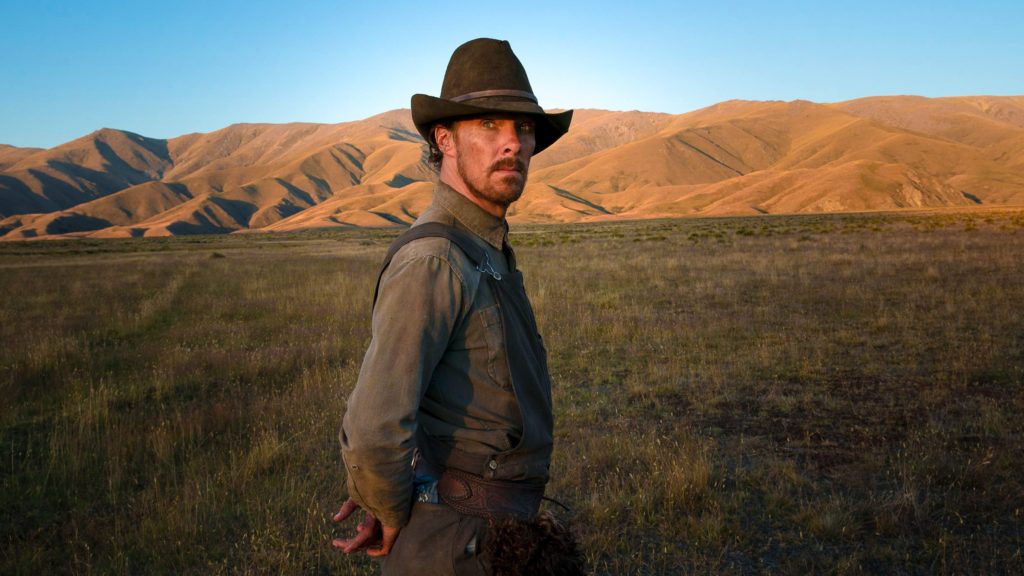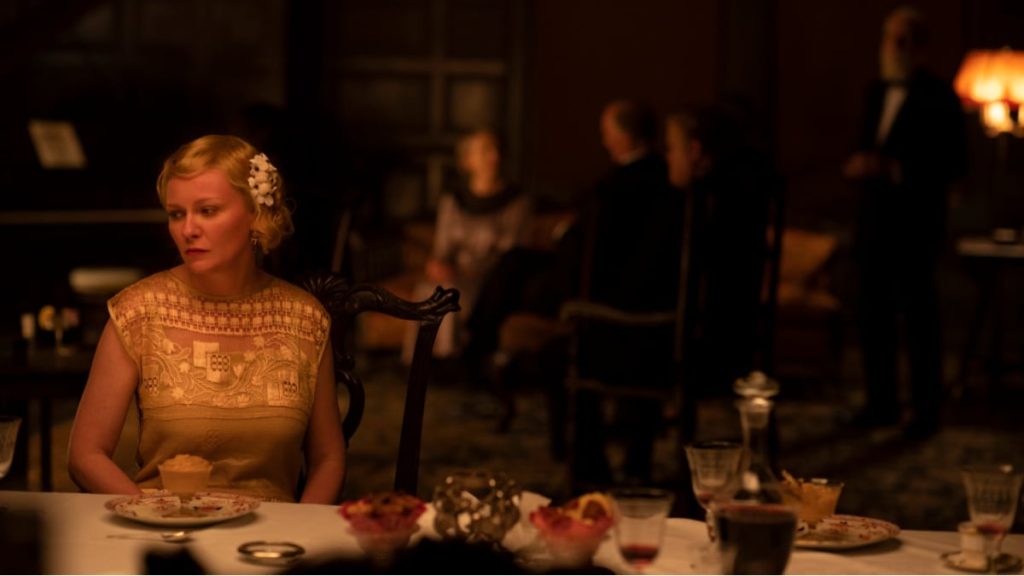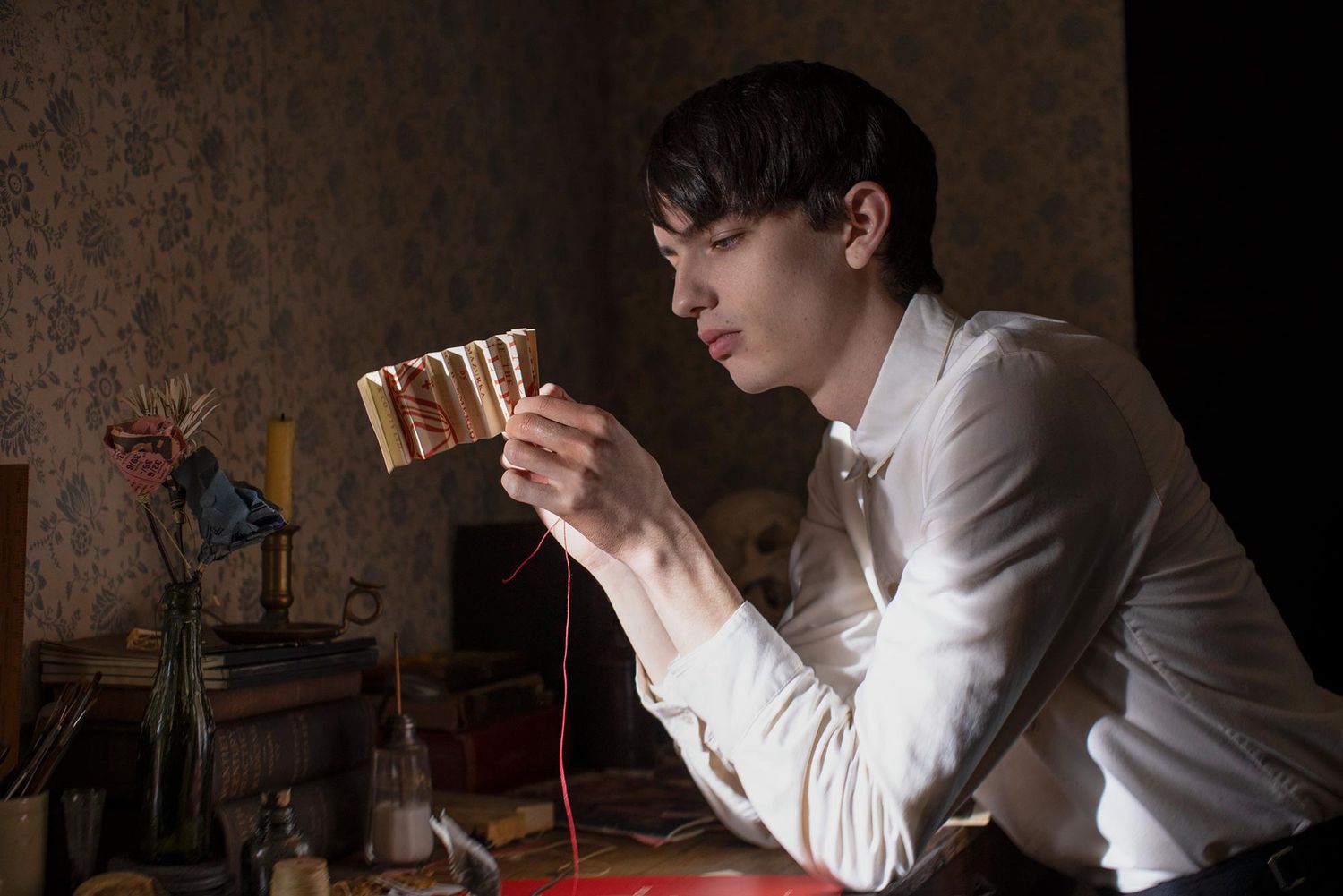
Set in 1925 on a vast Montana cattle ranch Jane Campion’s simmering drama The Power of the Dog is a portrait of a seething man and three pivotal relationships.
That man is Phil (Benedict Cumberbatch), who owns the ranch with his brother George (Jesse Plemons). Phil is a natural leader, quick-witted and verbal, with the cowboy skills and machismo to single-handedly castrate 1500 steers…without wearing gloves. He acts like he is living in 1870, but not out of ignorance – he was Phi Beta Kappa at Yale and has chosen his retro persona.
George has also been to college, but one senses that George didn’t have the intellectual curiosity to finish. George is quiet but not self-conscious about it. Comfortable in his own skin, he dresses like a prosperous 1925 businessman, even when on horseback. Phil has excitement, and George has decency.
There is no alpha in the brothers’ relationship. With all his overt masculinity- Phil defers to George socially and in business. Despite their contrasting personalities, they complement each other comfortably, and they even sleep in the same hotel bed.

Phil is rocked when George suddenly brings home a bride, the widow Rose (Kirsten Dunst). (Dunst and Plemons are a couple in real life.) Phil reacts with a toxic campaign intended to inflict misery on Rose. He bullies her son and os so mean to her that she won’t even come down to dinner in her own house without her husband. Once capable of running an inn and restaurant, she is now shattered, hiding booze around the house so she can sneak self-medication, and she sinks into a puddle of drunkenness.
But Phil’s most pivotal relationship is with Rose’s teen son Peter (Kodi Smit-McPhee), who is sensitive, artistic and effeminate. From his first sighting of Peter, Phil unleashes a torrent of bullying with merciless hostility and incites the entire bunkhouse full of cowboys to join in. Peter’s life at the ranch becomes as filled with dread as his mother’s.
Campion doesn’t linger on the point, but Peter returns to the ranch from a year of medical studies, having developed a close friendship with another guy at school. Peter is much more self-confident, and then he discovers one of Phil’s secrets. At this point, the scales are tipped, and Phil and Peter’s interactions evolve into more of a duel. After all, Peter is the only character who is at least as smart as Phil. What happens is utterly unexpected.
The ending of The Power of the Dog is the ultimate irony – on multiple levels.
Benedict Cumberbatch and Kodi Smit-McPhee deliver two of the year’s finest performances. Benedict’s Phil is fundamentally mean, with a meanness driven from rage just below the surface, perhaps from self-loathing. Or, perhaps the rage is from Phil’s resenting that he has any vulnerability.
There is (hopefully) a time when each boy becomes a man. In the culture, we usually see this depicted physically, but it has more to do with developing a new psychological toughness than physical toughness. Late in the film, The Power of the Dog morphs into a singular coming of age story. Smit-McPhee’s performance as Peter finds his own mental and emotional power and takes psychological command is the key to The Power of the Dog’s success.

The entire cast is very good, including Keith Carradine, Frances Conroy (Six Feet Under), and Thomasin McKenzie (Leave No Trace, Jojo Rabbit, Last Night in Soho).
The Power of the Dog is directed by Jane Campion (The Piano), and Campion adapted the screenplay from the Thomas Savage novel. Campion is a historic figure, the second woman to be nominated for a directing Oscar, the first to win the Palme d’Or; and a favorite of critics and cinephiles. I have not warmed to her other work, except for the first season of the episodic series Top of the Lake, starring Elisabeth Moss. But The Power of the Dog is a perfectly paced film, as the story builds from an exercise in dread into the unforeseeable.
The Power of the Dog is also a beautiful film, thanks to Campion and rising cinematographer Ari Wegner (Zola). I wouldn’t have suspected that New Zealand is standing in for Montana. Campion found enough dust and dry, yellow grassland in New Zealand to make it work very well.
The Power of the Dog has been in theaters and is now streaming on Netflix.
